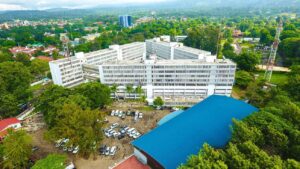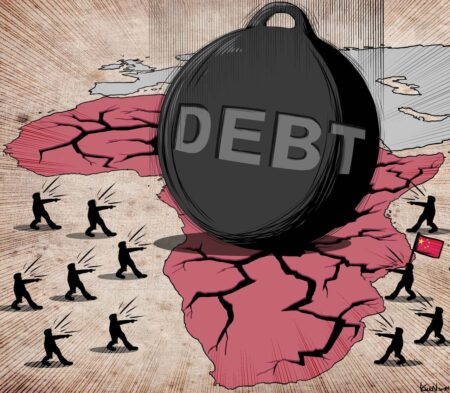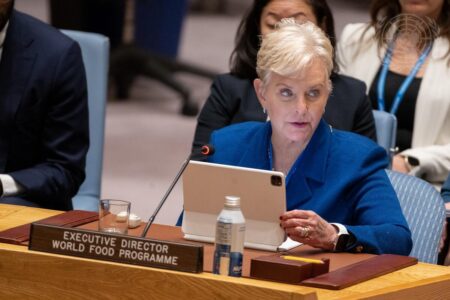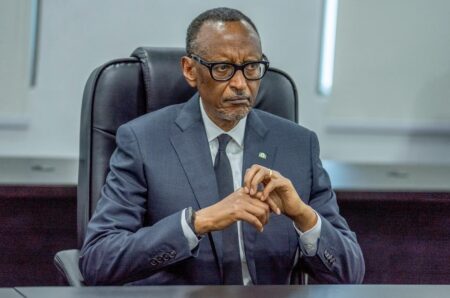- Beijing has undertaken to train 6,000 military personnel and invite 500 African officers to China for skilling.
- As China strengthens its military ties in Africa, the US has faced setbacks, particularly with the recent withdrawal of American troops from Niger.
- Analysts say China’s military push in Africa is part of a broader strategy known as the Global Security Initiative (GSI), launched in 2022.
In a rapidly shifting world, China, already the top trading partner with Africa is going further by announcing a bold $140 million military cooperation plan to train 6,000 personnel across the continent. This development, announced at the 2024 summit on China-Africa cooperation by Chinese President Xi Jinping, has raised eyebrows, particularly among US defense officials, who believe this move is aimed at furthering China’s economic and strategic interests.
But is there more to China’s growing military involvement in Africa? And how does this fit into the larger geopolitical rivalry between economic and military giants US and China?
The $140 million military pledge
At the heart of China’s strategy is Beijing expanding military cooperation with African nations. This will include among other things, an undertaking to train 6,000 military personnel and invite 500 African officers to China for skilling. This announcement, described by analysts as unusually explicit, marks one of China’s most direct military commitments in Africa to date.
Lauren Johnston, an associate professor of China studies at the University of Sydney, emphasized the importance of this development. “This year’s military pledge was by far the most explicit. We’ve never seen anything so measured and direct,” Johnston told Voice of America (VOA). While China has long cooperated with Africa on security matters—including peacekeeping missions and military training—the latest announcement appears to signal an increased focus on the continent’s military infrastructure.
But this move is raised even more questions about China’s motives. According to Kelly Cahalan, a spokesperson for the US-Africa Command (AFRICOM), China’s military expansion in Africa is largely driven by economic interests. “The PRC’s long-term vision for Africa is tied to its own economic benefit and growth,” Cahalan told VOA, adding that China is now the second-largest arms supplier in Africa, with a significant presence in the region’s defense industry.
US recalibrates its military presence in Africa strategy
As China strengthens its military ties in Africa, the US has faced setbacks, particularly with the recent withdrawal of American troops from Niger. Earlier this year, the US was forced to close its $100 million airbase in the country following demands from Niger’s military junta. The airbase had been a critical part of US counterterrorism efforts in the Sahel region.
General Michael Langley, the commander of AFRICOM, noted that the US is in talks with other West African nations, including Ghana, Ivory Coast, and Benin, to reset and recalibrate its military presence.
“We start to reset and recalibrate some of our assets,” Langley said during a briefing with journalists in Nairobi, Kenya, highlighting the US’s effort to regain its foothold in the volatile region. His remarks came shortly after his visit to Kenya and Somalia to discuss counter-terrorism efforts against al-Shabab.
However, Langley’s comments on China’s growing influence in Africa suggest a cautious approach. “When we have engaged with our African partners, we don’t give them an ultimatum of who to choose for a security partner,” he noted. Langley’s focus on African-led, US-enabled partnerships contrasts with China’s more assertive role, highlighting the growing rivalry between the two superpowers on the continent.
China’s strategic vision
China’s military push in Africa is part of a broader strategy known as the Global Security Initiative (GSI), launched in 2022. The GSI highlights that China’s principle of non-interference in other countries’ internal affairs—a contrast to what many African leaders perceive as the more interventionist policies of the West. This approach resonates with African nations that are seeking to diversify their military partnerships and reduce dependence on Western powers.
As China’s economic interests in Africa continue to expand, maintaining a stable security environment on the continent is becoming increasingly important for Beijing. Analysts believe that China’s non-assertive posture in Africa helps to distinguish it from the US, allowing China to cultivate strong ties with African nations without being seen as meddling in their domestic affairs.
“The need for a stable security environment becomes critical as Chinese economic interests expand across the continent. However, Beijing is careful to avoid appearing too assertive,” de Kluiver from the Institute for Security Studies, told VOA. China’s emphasis on non-interference aligns with its broader narrative of being a “no-strings-attached” ally of Africa, positioning itself as a more attractive partner compared to the West.
Read also: Inside the multibillion-dollar pacts African leaders inked with China
Military cooperation: A competing model with US security plan?
The US and China are presenting African nations with two distinct models of military cooperation. African countries that have traditionally relied on US military training and support now find themselves at a crossroads, as they are offered the opportunity to partner with China instead.
Darren Olivier, director of the conflict research consulting firm African Defense Review, raised an interesting question: how will African nations manage this shift in military partnerships? “It will be interesting to see how African nations juggle their options.
If they opt for Chinese training, they could silo their armed forces into units trained by Western countries and units trained by China,” Olivier told VOA. Such a division, he noted, could lead to incompatibility in military doctrines and standards, complicating the security landscape on the continent.
Moreover, some African governments may find China’s more flexible approach to military cooperation appealing, particularly as Western nations often impose strict human rights conditions on their military partnerships. “Western countries are traditionally skittish about training units that might commit human rights violations,” Olivier added, suggesting that some African nations could turn to China to bypass these restrictions.
Will China establish a second African outpost?
One of the biggest concerns for Washington is the possibility that China will establish a second permanent military base in Africa. China already has a base in Djibouti, located on the continent’s east coast, and is reportedly eyeing a second base in West Africa. This would give Beijing a strategic military presence on both sides of the continent, with implications for the US and its global military positioning.
There have been rumours of Chinese interest in establishing a base in Equatorial Guinea, though these talks have reportedly been frozen. The US, meanwhile, has responded by offering security packages to African nations in hopes of countering China’s growing influence.
Last week, Bloomberg reported that the US is assembling a $5 million security package for Gabon, including special forces training, to prevent China from setting up a military foothold in the country.
China’s increased military cooperation with Africa is undoubtedly part of a larger strategy aimed at expanding its influence on the continent. While economic interests are at the core of this initiative, China’s military presence in Africa signals a long-term commitment to shaping the continent’s security system.
That be as it may, African nations find themselves at the center of a geopolitical tug-of-war. The question remains: will China’s growing military influence on the continent serve Africa’s long-term security needs, or is this part of a broader strategy to secure China’s own economic and strategic interests? Time will tell.











